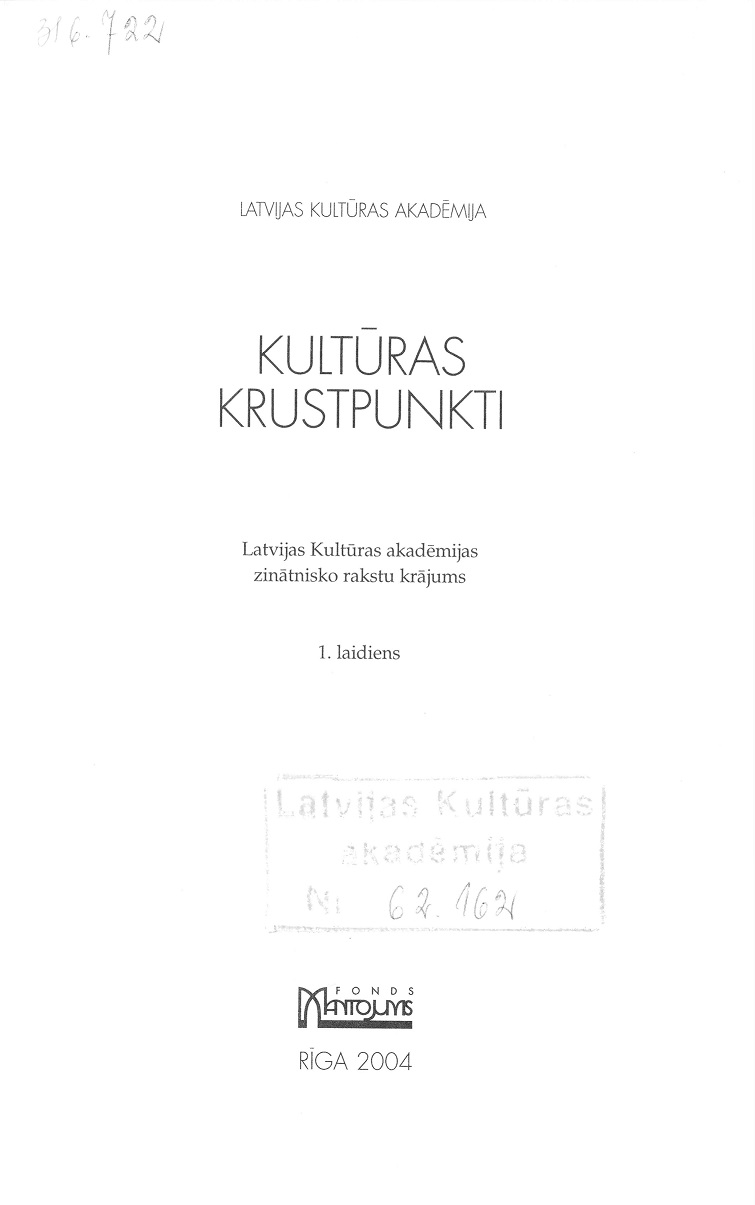Telpiskā identitāte latvijas sabiedrības priešstatos globalizācijas kontekstā
Spatial Identity in the Views of Latvian Society within the Context of Globalization
Author(s): Pēteris LaķisSubject(s): Metaphysics, Epistemology, Social Philosophy, Philosophy of Mind, Crowd Psychology: Mass phenomena and political interactions, Globalization, Identity of Collectives
Published by: Latvijas Kultūras akadēmija
Keywords: Spatial identity; Latvian society; globalization; Hegel; abstract identity; temporal identity; nation’s mentality; physical reality;
Summary/Abstract: The issue of identity, which has recently become especially topical in the philosophical, sociological and culturological literature, should be addressed taking into account several methodological principles. The most important of them is presented in G.W.F. Hegel's statement, that it is very important to correctly understand the true meaning of identity, it is necessary to achieve that it is not as an abstract identity, that is, an identity, which excludes difference. As identity is not a motionless self, but a quality changing in time, its determination can be differentiated by a specific spatial and temporal identity, as well as set by various positions of this identity in society. Importance and prerequisite, but not sufficient, conditions for spatial identity, which is the theme of this article, are the boundaries defined by the geographic and political reality. Another, maybe even a more important, factor is the subjective interpretation of these objective boundaries and their embodiment in the nation's mentality and consciousness, as the subjective perception creates its psychological image of spatial identity, which merges with a fragment of physical reality.
Journal: Culture Crossroads
- Issue Year: 1/2004
- Issue No: 1
- Page Range: 29-37
- Page Count: 9
- Language: Latvian

